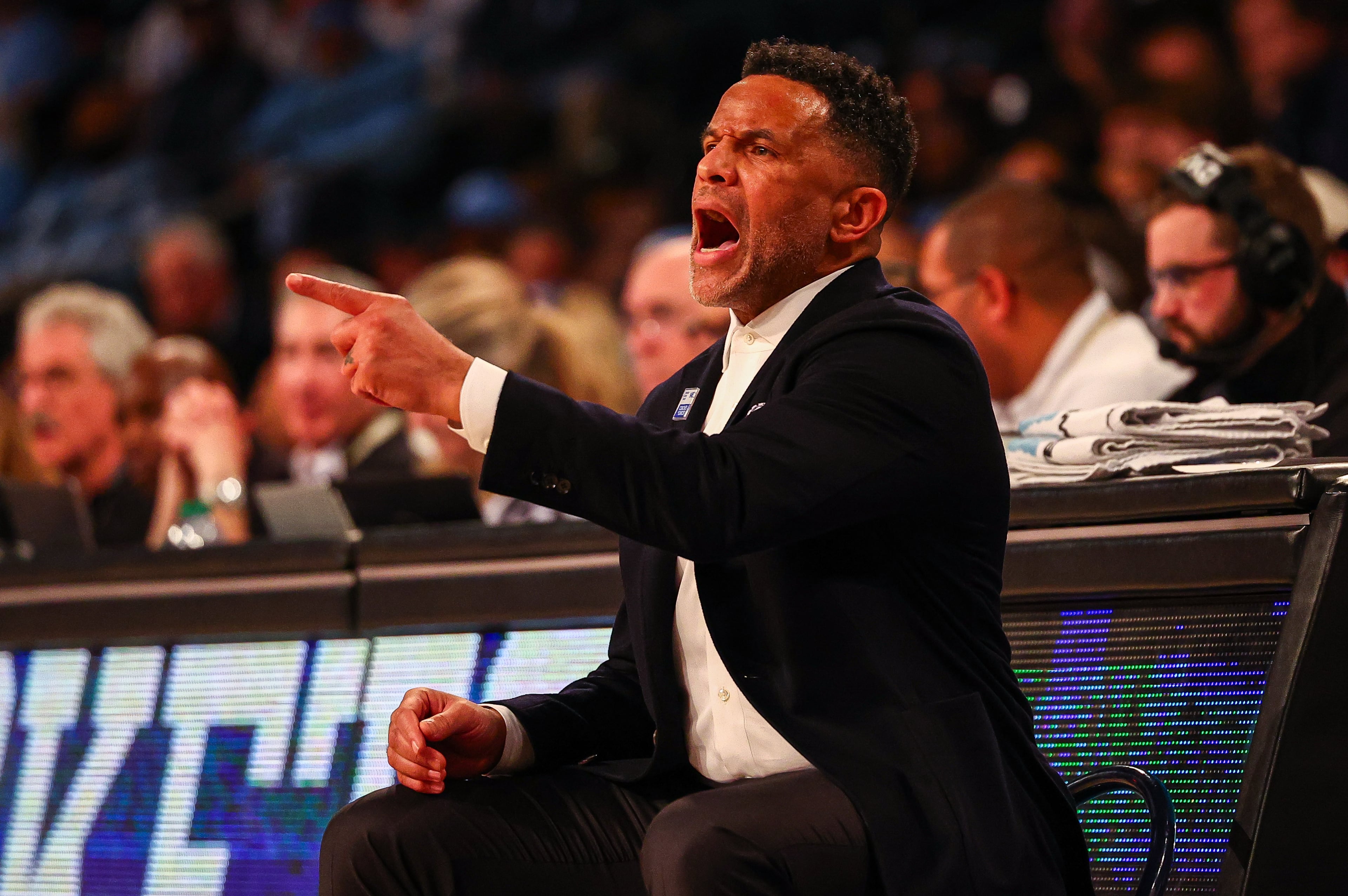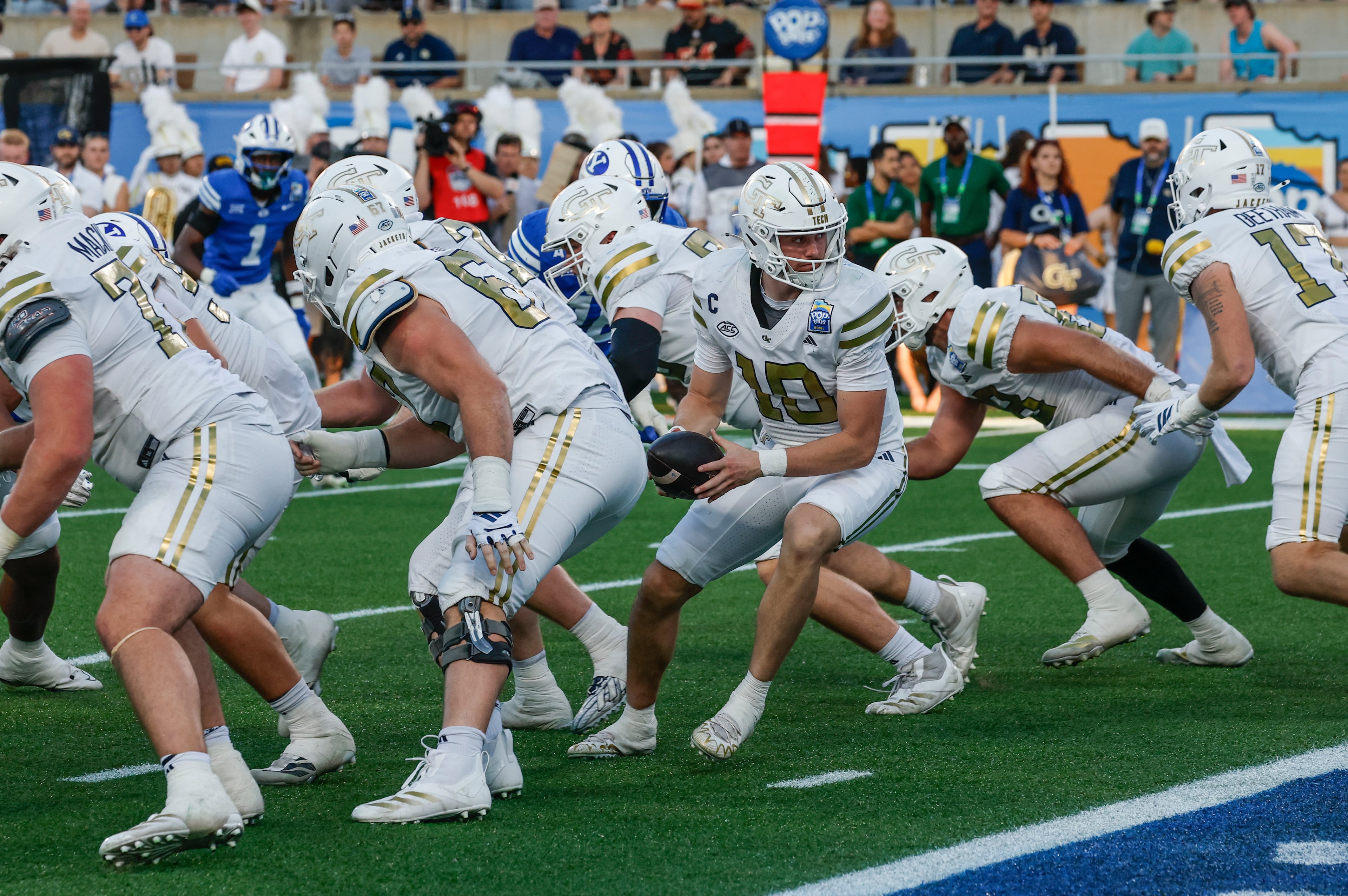Ranking Georgia Tech’s opponents 1-12
Georgia Tech’s schedule rates as one of the more difficult in the country, a 12-game slog that includes five games against teams that finished in the final AP top-25 poll season and eight against teams that were in the top 50 of the final Sagarin rankings.
Which are the toughest matchups and which the easiest? One attempt at ranking the 12.
12. Alcorn State, Sept. 1
Alcorn State is a good team in its FCS league – the Braves have won the East Division of the SWAC for four consecutive years and had 11 players voted to the preseason all-conference team. Running back P.J. Simmons ran 80 times last season and averaged 8.6 yards per touch. That said, this game should be a mismatch.
11. Bowling Green, Sept. 29
Bowling Green is 6-18 in the past two seasons since losing coach Dino Babers to Syracuse. The Falcons have been O.K. on offense and a problem on defense. Last season, they were last in the MAC in defensive rushing yards per play and 11th (out of 12) in defensive yards per pass attempt. Tech will have to prepare for sophomore quarterback Jarret Doege, who completed 64 percent of his passes as the starter in the second half of the season.
10. Virginia, Nov. 17
The Cavaliers were not a very good team last season, finishing 6-7. They also lost probably their four best players and aren’t very experienced, particularly on offense. But … they did beat Tech last year, 40-36 in a last-minute loss for the Jackets. Virginia, now in its third year with coach Bronco Mendenhall, has lost four in a row at Bobby Dodd Stadium. Mendenhall gave a rather dire assessment of his team in June when he said that the roster (prior to the arrival of the freshman class) had 27 ACC-caliber players. But even after the arrival of the freshmen, that leaves Virginia in the mid 40’s.
9. South Florida, Sept. 8
South Florida was 10-2 in coach Charlie Strong’s second season, but brings back only 11 starters, and one of the departures was three-time all-conference quarterback Quinton Flowers. It does bear mention that the expected replacement is Blake Barnett, who began his career at Alabama before transferring to Arizona State. A road game, the matchup has the potential for a surprise loss. USF will undoubtedly be eager to take down a power-conference opponent.
8. Pittsburgh, Sept. 15
It’s on the road, but it’s another game that Tech has to pick up to have the kind of season it wants. The Jackets have had considerable success moving the ball against the Panthers in coach Pat Narduzzi’s three-year tenure, but they’re 1-2 in that span, losing last-minute decisions in 2015 and 2016. Tech has averaged 7.3 yards per play in the three games and 5.5 yards per play against the rest of the ACC. Pitt brings back nine starters on defense and four on offense.
7. Duke, Oct. 13
Would you believe that Duke has beaten Tech three of the past four years, and, if not for a Justin Thomas escape act in 2016, might well be sitting at four in a row? Further, the Blue Devils should field a better team than the one that thrashed the Yellow Jackets in Durham, N.C., in November. This team is a lot more experienced, has a returning starter at quarterback and will be the lone team to play Tech with extra rest. (Tech will play Virginia Tech when both teams are coming off an open date.)
6. North Carolina, Nov. 3
Last season, Georgia Tech caught North Carolina in a down year that was exacerbated by injuries, and the result was its 33-7 win at Bobby Dodd Stadium. The Tar Heels figure to rebound, with talented skill-position players across the offense, the sort that gave the Jackets problems in their three-game losing streak (2014-16) to UNC. Further, the defense brings back eight starters, including leading tackler Cole Holcomb. Last year’s Tech win was among the most decisive ACC wins in coach Paul Johnson’s tenure at Tech. Should the Jackets prevail again, this time in Chapel Hill, N.C., it will almost certainly be by a much narrower margin.
5. Louisville, Oct. 5
The first-ever meeting between the two teams will be played on a Friday night in Louisville, Ky., which means an accelerated week for both teams. The Cardinals have been strong, though not unbeatable, at what is now Cardinal Stadium. In the past five years, Louisville is 24-7 (.774) on its home field. Tech, by comparison, is 23-10 (.697) at home over the same span. Louisville will have to replace Heisman Trophy-winning quarterback Lamar Jackson (with the exquisitely named Puma Pass), but the Cardinals have a potent trio of wide receivers. Only four starters are back on defense, however.
4. Miami, Nov. 10
Tech proved last year it can beat the Hurricanes, coming within one tipped fourth-down pass of upsetting Miami at Hard Rock Stadium. However, the Jackets have repeatedly come up short in Johnson’s tenure, with a 2-8 record. This looks like a loaded Miami team, mixing experience and talent, one that should be even better than the 2017 version that won the Coastal Division. Even at home, beating the Hurricanes would figure to be an upset.
3. Virginia Tech, Oct. 25
In a definitive Coastal chaos statistic, while Tech is 1-3 against Duke (and North Carolina) in the past four years, the Yellow Jackets are 3-1 against the Hokies in the same span. Virginia Tech’s defense is young and lost four All-ACC players from last year. Further, the Hokies have had a tumultuous offseason with unexpected player losses. The offense has a potential star in quarterback Josh Jackson (20/9 TD/interception ratio last season) and most of its running game back. Winning in Lane Stadium on what portends to be a cold November night would be significant.
2. Clemson, Sept. 22
The Tigers are merely a team that figures to start the season in the top three nationally and has a defensive line for the ages. And has beaten Tech the past three seasons by an average score of 31-13.7. Further, Clemson brings back 15 starters. What gives Tech hope? The Jackets have had moments against Clemson in their three-year losing streak, and Clemson has had two hiccups in ACC play each of the last two years. And the Jackets will be at home. But, a tough, tough matchup.
1. Georgia, Nov. 24
It’s debatable that Clemson is actually the tougher assignment than the Bulldogs, particularly given that Tech has won in its past two trips to Athens. Georgia does have a lot of pieces to replace – starting with linebacker Roquan Smith and running backs Nick Chubb and Sony Michel – but they’re hardly hurting for talented replacements, and they’ll presumably have a season’s worth of experience by the time Nov. 24 rolls around. The Jackets’ big challenge will be finding a way to contend with a powerful offensive line.



